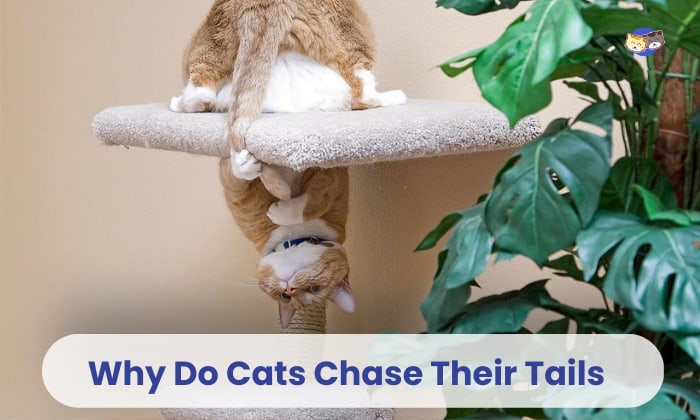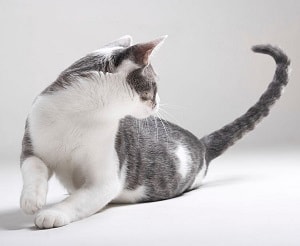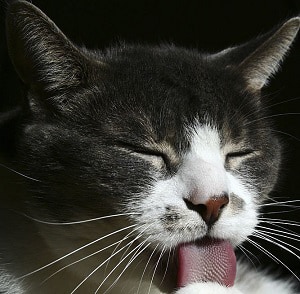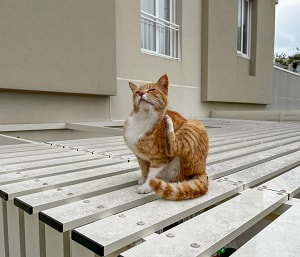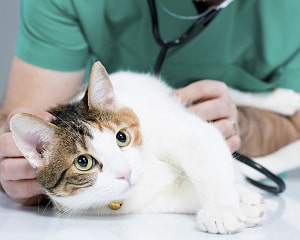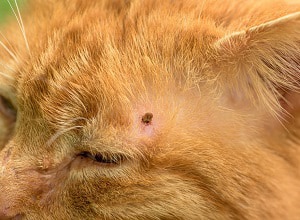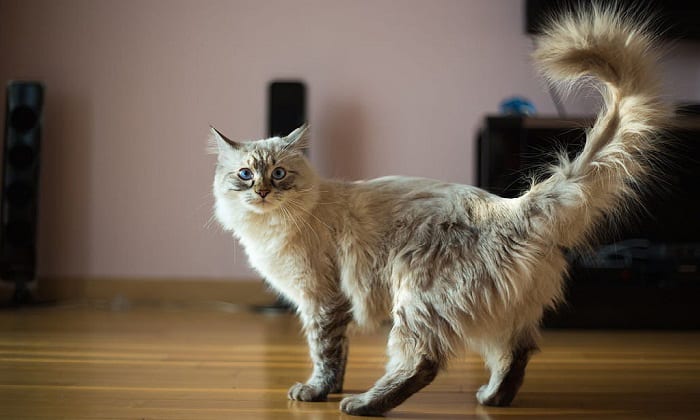Cats are fascinating creatures, and their playful nature is among the reasons why we love them so much. One of the most intriguing feline behaviors is when they chase their tails.
This causes cat owners to ask on Reddit, why do cats chase their tails? Is this behavior normal, and what does it signify?
The most common reasons cats play with their tails are boredom, behavioral issues, and health issues. Let’s explore these questions in-depth.
Table of Contents
Why is My Cat Chasing Its Own Tail?
You can explain why your cat suddenly chasing its tail by the possible reasons below. Make sure to pay extra attention to the small signs if you suspect that your cat might be acting out of character.
1. Playfulness
Cats are natural hunters, and chasing their tails may be a manifestation of their playful instincts. The most common triggers for their hunting instincts are things that quickly catch their attention, such as moving objects.
This playful behavior is also accompanied by dilated pupils, swishing tails, and trying to pounce or chase the moving object.
So, when kittens chase their tails, it could mean they want to have fun. These small creatures are easy to stimulate and trigger, so, your kitten is playing with tail because it is easily fascinated with moving objects, including its tails.
2. Boredom
If your cat doesn’t have enough stimulation, it may turn to tail-chasing as a form of entertainment.
This is most common with indoor cats who have pent-up energies to play with. Compared to outdoor cats who can hunt and chase prey, indoor cats are deemed understimulated because of the limited opportunity to use their natural hunting instincts outdoors.
This causes your cat chasing tail to ease its boredom.
3. Obsessive compulsive disorders (OCD)
Just like humans, cats can also experience OCD. This disorder happens when the cat has a trigger that causes them to repetitively do normal behavior.
Triggers of OCD could either be anxiety or stress. To soothe themselves from the stress or anxiety, they would either tail-chase or do the following:
- Overgrooming
- Self-mutilation
- Object licking
4. Allergies
One of the possible reasons why your cat is chasing its tail is due to a skin condition from environmental or food allergies. This will cause your cat to have itchy and dry skin on its tail.
Some common foods or things that your cat might be allergic to are the following:
- Grains or any cat food containing an additive
- Beef
- Chicken
- Fish
- Dairy
- Other ingredients that have a strong smell (from a laundry detergent or perfume)
This itchiness forces them to chase and scratch their tail to alleviate themselves from the itch.
If you notice that your cat keeps chasing its tail due to a skin disease on its tail, consult your vet immediately to help you determine which causes its allergy.
From there, you can take the necessary steps in avoiding the specific root of your allergy to your cat.
5. Stud tail
Supracaudal infection is usually seen in intact male cats. This infection occurs when the waxy secretions build up in the base of the cat’s tail.
The base tail produces a lot of sebaceous glands. So, when it builds up and becomes overactive, this causes irritation and inflammation, leading to infection.
This explains why your cat chases its tail—to try to soothe and find relief from the irritation.
When you notice that your cat has an infection, you might need to neuter your cat and get proper antibiotics.
Regardless, it’s best to contact your vet first regarding your cat’s status.
6. Fleas
If your cat keeps on chasing its tail, it might be that it has fleas.
Having a flea infestation causes your cat’s tail to itch which leads to them looking like they are chasing its tail when in reality, your cat only wants to scratch its tail to find some relief.
You can check for other signs of flea infestation with the following:
- Flea dirt (looks like coffee grounds)
- Skin bumps
- Scratching excessively
- Overgrooming
- Seeing adult fleas on your cat’s skin
To solve this issue, you will need to thoroughly clean your home and your cat to make sure that there are no more fleas in your environment. Your vet can also help you by recommending helpful products.
7. Anal glands problems
There are two anal sacs that generate glands for cats to leave their trace. These sacs are located right beside a cat’s butt and emit the glands once they are done pooping.
So, when these anal glands become clogged, mostly due to infection, the cat can feel painful and uncomfortable. That’s why it keeps chasing and even biting its tail hard, which is to relieve some of the frustration due to the pain.
8. Feline hyperesthesia syndrome (FHS)
FHS is a rare medical condition that gives a sudden tingling sensation from the back of your cat. This sudden tingling sensation from the back and the tail of your cat can happen any time of the day—even during their sleep!
Because of this, your cat engages in self-mutilation and overgrooming at its back and tail, hoping for this sensation to stop.
Frequently Asked Questions
Is it normal when cats chase their tails?
Yes, it’s entirely normal for cats to chase their tails occasionally. However, if the behavior becomes excessive, it’s worth seeking professional advice.
Alternative ways to keep your cat entertained
How do I get my cat to stop chasing their tail?
If you’re concerned about your cat’s tail-chasing behavior, there are plenty of alternative ways to keep them occupied. Some ideas include interactive toys such as lasers and wand toys, scratching posts, and climbing structures. You can also try playing with your cat regularly.
Why is my cat chasing and biting its tail?
The possible reason why your cat is chasing and biting its tail is because of stress. Causes of stress could be an additional pet at your home or a recent house move. Regardless, you need not make it a habit for your cat to chase and bite its tail.
This behavior will easily cause them an infection. If your cat keeps chasingtail, it’s best to consult your vet.
It can also be explained by Hyperesthesia syndrome, where the cat feels a tingle in its tail that aggravates it.
Why is my cat chasing tail and meowing at night?
An older cat might be chasing its tail and meowing at night out of boredom. This is especially true when they are not trying to harm themselves by chasing their tails.
Conclusion
Cats are playful creatures, and chasing their tails is a natural behavior for many. While it’s usually nothing to worry about, excessive tail-chasing could be a symptom of a more serious issue.
If you’re concerned, always consult your veterinarian. In the meantime, provide your cat with plenty of stimulation and playtime to keep them happy and healthy.
We hope that we have answered your question, “Why do cats chase their tails?” and this article has been helpful in keeping your cat happy.

I am Amy Sawy, a Doctor of Veterinary Medicine (DVM) graduate from the University of Kansas. y husband, Dr. Plummer, and I own a veterinary clinic in Phillipsburg, Kansas. In addition to my professional background, I am a devoted pet owner myself, with a household that includes dogs, rodents, and most notably, cats – a total of five felines in my home.
In 2020, I joined an organization as a professional writer, leveraging my experience and collaborating with my team to deliver the most valuable information for your cat’s care.


